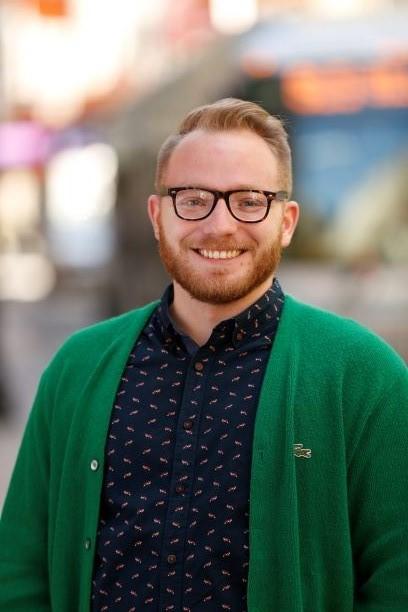Christian Brandt
Christian Brandt

MKI Affiliation:
MKI Steering Committee and Instructor
Role:
Community Engagement Manager
Organization:
Metropolitan Area Planning Council
Profile
As a child, Christian Brandt was obsessed with maps. He grew up in a small town in Idaho to a civically minded family: his mom was a law professor and helped start the Idaho chapter of ACLU. As with many individuals, his career path was a circuitous one. Becoming an urban planner did not cross his mind until after college, while working as a case manager at a homeless shelter. He realized that he could think about issues of affordable housing development while incorporating his interests in geography and social work. And it was not until attending the Tufts UEP program that he realized that he could make community engagement planning a career.
In his current role as Community Engagement Manager at Metropolitan Area Planning Council (MAPC), Christian supervises the Community Engagement specialists, scopes new consulting projects for the department, develops best practice resources, provides technical assistance, and facilitates trainings (including MKI trainings!).
In his view, city planning and community development are interlinked in key ways. Christian reflects, “Planners should be conduits for community members to shape the future of their communities…there’s a lot of authorization involved in what kinds of community development you get to build, so planners are uniquely situated to see the 50 feet view of development in the area.” For Christian, planners should be shifting the framework away from being authorizers of development and towards receiving permission from the community for development.
Christian is a newly minted MKI Steering Committee member, and he has also served as an instructor on several different trainings. First through the classic Community Engagement training, and then through the Planning 101 training. Christian has enjoyed getting to see how each of these trainings have evolved over time. For example, at the beginning of the pandemic his department needed to transition to virtual engagement quickly, and it has become a role model for many organizations across the state. Christian has also participated in the refining of the Planning 101 training. In its original iteration, participants gave feedback that they wanted to learn more about the historical impact planners have had on racial disparities and discrimination in the region.
This year, in collaboration with Elijah Romulus, Sarah Horsley, and Rene Mardones, MKI was able to offer a three-part series called "City Planning in Place: Prioritizing Equity, Racial Justice, and Community" that highlighted both the historical impact and the community led potential for improving the planning process. In his words, “It’s useful to know what a planner does, what the laws they’re following, and the legal precedent they’re dealing with. It gives you more knowledge to adapt accordingly to change the system.” Christian particularly enjoys teaching at MKI because of the opportunity to learn from community development professionals directly serving their communities.
Unlike some, Christian loves going to public meetings. He gains so much from talking to people who are passionate about their own communities. He also enjoys talking to planning staff at different municipalities because of the fruitful conversations that can lead to change. Christian is particularly proud of the Qualitative Methodology Guide he helped research and create, which has been useful both internally at MAPC and outside the organization. Recently, they are beginning an update of this guide to explore a potential area of practice to provide services to planning staff across the MAPC region. The Mel King Institute looks forward to continuing to partner with MAPC to empower community development professionals around community engagement and city planning.
This spotlight will be my final piece as the Mel King Institute program coordinator! It has been a pleasure to interview and learn from our program partners and participants. Inspired by planners at the forefront of community-inclusive planning work such as Christian, this fall I will begin my Masters in City Planning at MIT. I look forward to incorporating what I learned these past two years in the community development field as a future urban planner.
- Lia Downing
